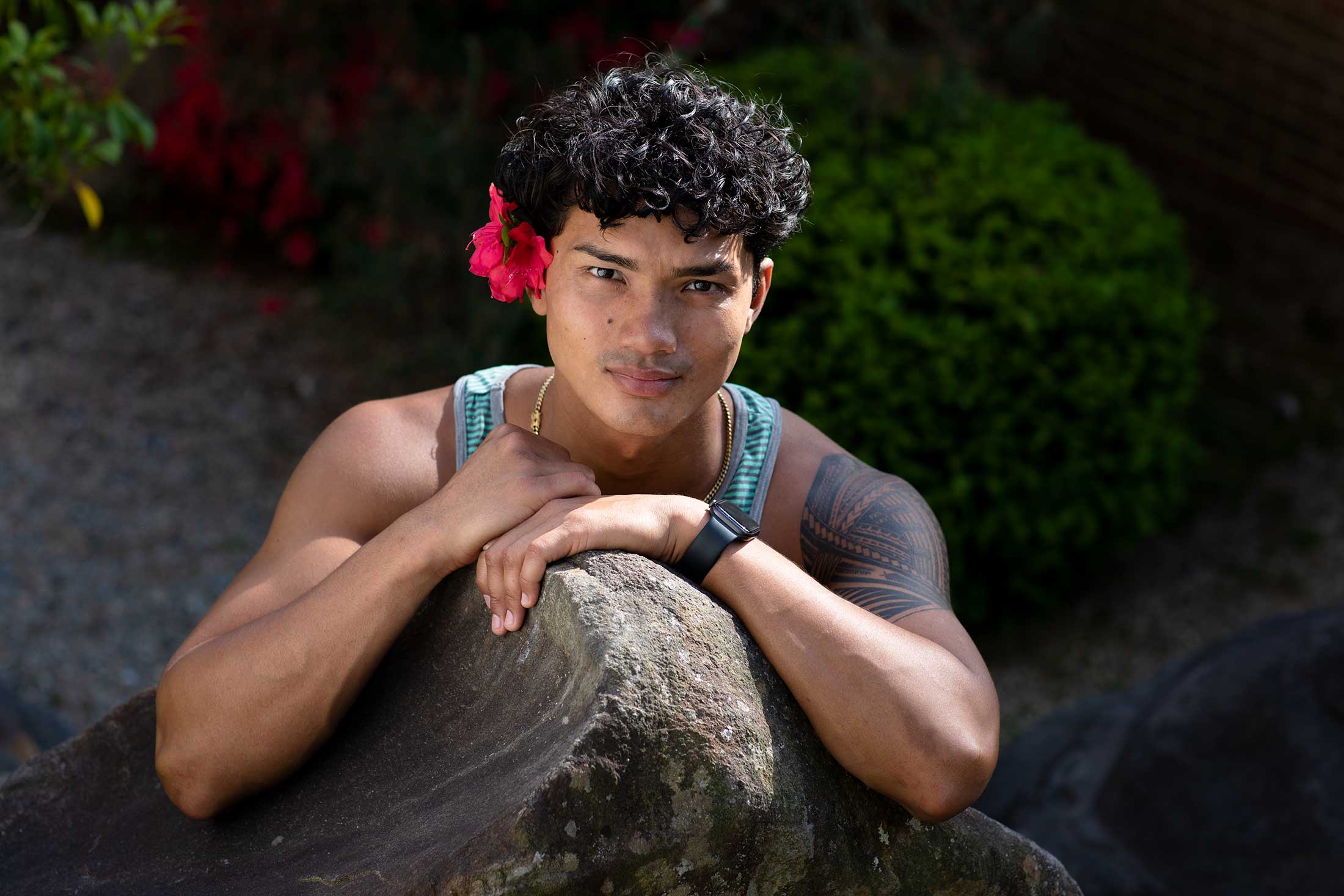Chris Tun ’25
Heritage: Karen (pronounced: Kah-ren) from Myanmar
Prospective majors: Environmental studies and law, jurisprudence and social thought

"My family's from Myanmar, but we're not Burmese. Ethnically, we are Karen (pronounced: Kah-ren). They are a minority in the country. So coming here, we call ourselves Burmese, but in reality, we are Karen. Being Burmese is more known to the average American, but even sometimes, people don't really know where Burma or Myanmar is. So I rarely say I'm Karen, because no one will know it because they'll think of [the name] Karen and that has a different connotation right now. So I guess I consider myself Karen American, but what exactly is Karen American? I'm not entirely sure right now. ...
With identity and defining yourself as one thing or another, I think one thing you should prioritize is—what is comfortable for you? What makes you feel like you are living your best life and makes life fulfilling? Because I think people put too much pressure on some identities, and it causes a lot of stress. And I've felt that way before too.
Maybe taking a step back, reflecting on your life and looking at yourself and seeing—'Hey, what part of me am I comfortable with? What part of me can I explore more? What part of me can I refine and make gold essentially? Because that part of me is going to be what defines me.' I think everyone should do that."
Hibiscus Zhang ’25
Heritage: Chinese
Prospective majors: Environmental studies and American studies

“How would I define being an Asian American? For me, that definition is always changing. It's something that I am still trying to figure out. But to me, Asian American is a way of being and a political identity first and foremost. I do not think that it counts as a cultural heritage because Asia encompasses so many different cultures. So, at least for me, it doesn't satisfy me as a cultural identity. It doesn't start and end there.
Then, when I started doing my own research into where the specific label came from and just trying to figure out what all of this is supposed to represent, I learned that Asian American as a label did not emerge until the late 1960s. And it started off as a political label that was meant to foster continental solidarity with countries in the global south suffering under U.S. imperialism. So Asian American as it was first articulated was a political label, and that's what it means to me right now. If anything, me being Chinese is a cultural identity or ethnic identity. It comes from a specific culture and history that I'm very proud to claim as my own. But Asian American to me means more of an intentional politics and also a way of being. It's hard, but I'm learning how to take that back and claim it as something that's wholly me.”
Uelese Patu ’24
Heritage: Samoan, Chamorro from Guam and Filipino
Major: Biology

“When I first came to Amherst, I had culture shock and I didn't really see any Polynesians around me. In high school [in American Samoa], I was only surrounded by Polynesians. Everybody looked like each other. When I came here, there was more diversity, but I'm one of the very few Polynesians... So I really missed [home], but I found myself listening to music from back home a lot more. I found myself calling my family just to speak Samoan to them and just trying to keep up with my culture. It just made me even more proud to be Samoan. …
I think there are a lot of values that come with island culture: always wanting to put others before you, always wanting to do the right thing, always wanting to keep a respectable image, as well as just genuinely be a good person, and always trying to excel at everything you do and not put shame on your family’s name… It’s all family based. It’s family oriented, and family comes first before everything. But the thing is, it’s such a small island. Everybody is family somehow, through marriage or cousins or something like that. So, it is just a community of giving. And I think giving and being nice and genuine is who I am, and it’s because of how I was raised and where I grew up.”